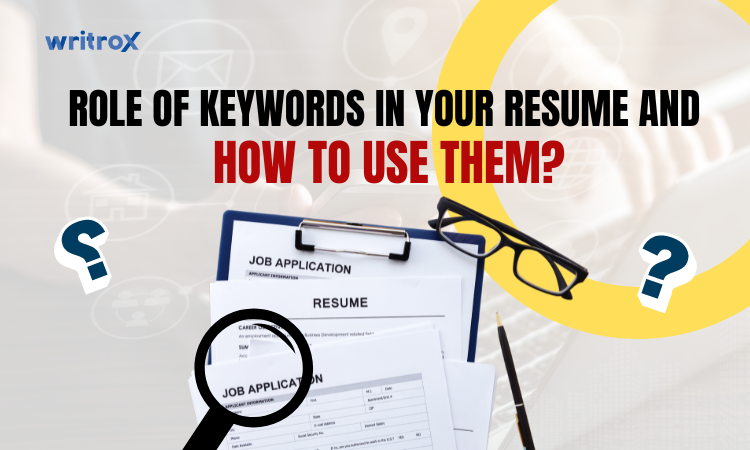Why Your Resume Isn’t Getting Noticed: Common ATS Pitfalls
According to studies, it is assumed that 70% of résumés are never seen by a human recruiter. They are filtered out by an ATS ( Applicant Tracking System). That is why the eligible candidates are not getting shortlisted for a job opportunity. Their résumés do not meet whatever standard the technology has set. This has become an important issue for job seekers who wait to be shortlisted for interviews. This article highlights the importance of Resume writing as per ATS and some widespread pitfalls that can result in rejection. By identifying and avoiding these mistakes, job seekers can increase their visibility and chances of getting noticed. The following sections will reveal the most essential reasons why resumes often fail to pass ATS filters, with tips on what to do to optimize their applications for success. 1. Understanding ATS and Its Role in Recruitment An ATS enables any company to organize candidates for hiring and recruiting. They can also be used in businesses of any size and industry to collect candidate information, organize prospects by experience and skill set, and filter applicants. ● What is an ATS? An ATS ( Applicant Tracking System) refers to software used by organizations to facilitate recruitment efficiently. It automates the gathering and analysis of job applications by scanning resumes for keywords and qualifications. The ATS streamlines the hiring process by filtering out unqualified applicants. Hence this is giving recruiters enough time to spend on the more suitable ones. In this respect, understanding how ATS works is very important for job seekers to ensure that their resumes get through these automated filters to the hiring managers. 2. Common ATS Pitfalls to Avoid There are some common ATS pitfalls to be aware of while Resume writing. If the formatting is too complex like elaborate layouts, images, and non-standard fonts it confuses the system and could misinterpret your qualifications. If the relevant keyword is not used in the resume or there is high use of graphics, or a proper file format is not used, the ATS gets confused to certify the resume and eventually it fails. ● Overly Complex Formatting One of the most common errors on most resumes is complicated formatting, which misguides the applicant tracking systems in most cases. Elaborate designs with pictures and fonts that are not the usual variety are most likely to create misinterpretations of critical information by the ATS. Clean formatting and standard fonts like Arial or Calibri will enhance the prospect of getting through the filters of the applicant tracking system. Bring out your qualifications clearly with simple headings and bullet points to make your resume easy to read. 3. Missing or Incorrect Keywords Keywords are important to be included in the resume because they make sure, first of all, that your resume matches the job description and will go through to human eyes, and it helps both the ATS and human eyes realize how well a candidate fits the job. Look for keywords directly in the posting and other identical positions. These words should be used naturally throughout the resume in the skills, experience, and achievements sections. This shall be done without the risk Dof overstuffing to ensure readability. Keyword insertion is best done by using pipes to separate the keywords and placing them either above the ‘About’ section or below the main title of the resume. 4. The Role of Resume Writing in Navigating ATS One of the effective ways through which applicant tracking systems are helpful to companies to sort through the great number of resume applications is by scanning through resumes for keywords related to any particular job description. This will let a recruiter go through all of the resumes efficiently and pick out those that best fit the position. Through the use of ATS ( Applicant Tracking System), companies will be able to optimize their hiring process and make sure only the best-matched applicants move forward to the following steps. ● Tailoring Your Resume for Each Job Application The most important thing when applying for jobs these days is to tailor your resume to each job application. Doing this might get you past the applicant tracking systems that all companies use nowadays. Applicant tracking systems look through your resume, seeking particular keywords and phrases that appear in the description itself. For that reason, no such general resume will pass the very first screening. To increase your chances, go through the job posting very carefully. Look for the necessary key skills, qualifications, and specialized terms in that industry. Next, work on your resume by filling it with keywords such as skills, experience, and summary. Use standard fonts to make the resume ATS friendly, and avoid complex layouts. When you get your resume as close to the job description as possible, it increases the chances of it getting through the ATS and into the hiring manager’s eyes. ● Balancing ATS Requirements with Human Readability Make a resume that works both for the ATS and human recruiters as provided by Writrox. They include relevant keywords from the job description in clear and concise language to provide the best Resume writing service. The formatting should be simple, with normal headings like “Experience” and “Skills,” so it’s compatible with the ATS. Avoid extremely complicated designs or graphics that will mislead the ATS. At the same time, structure your content logically, touting achievements and qualifications which is easy for human recruiters to read and understand. Conclusion Common mistakes regarding ATS are complicated formatting, missing essential keywords, and having the same one-size-fits-all resume. This can cause your resume to face problems in passing through ATS and will reduce your chances of being noticed by hiring managers. Opt for the best CV Writing service by Writrox and get you resumes shortlisted by top companies. Call to Action Act now, and begin with your resume to make it ATS friendly. It should be cleanly formatted and keyword-optimized, but most importantly, tailored to the specific job one is applying for. These changes can make a big difference in getting
Why Your Resume Isn’t Getting Noticed: Common ATS Pitfalls Read More »














